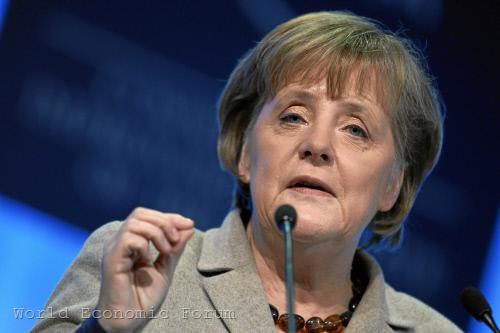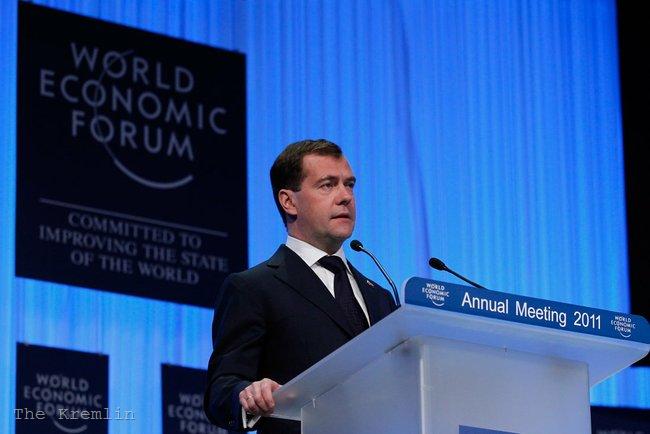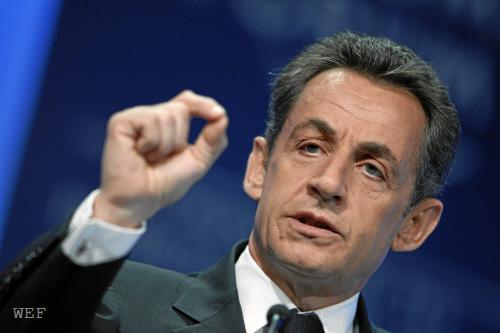For the East the glass is half full, for the West - it is half empty
Adelina Marini, January 26, 2011
 What is the New Economic Reality - under this broad motto one of the first panels in the framework of the Annual Meeting of the World Economic Forum in Davos was held. Even the professor in economy Nouriel Roubini, who proved to be very precise in his forecasts so far, did not manage to make a concrete analysis of the present world economic situation.
What is the New Economic Reality - under this broad motto one of the first panels in the framework of the Annual Meeting of the World Economic Forum in Davos was held. Even the professor in economy Nouriel Roubini, who proved to be very precise in his forecasts so far, did not manage to make a concrete analysis of the present world economic situation.
According to Mr Roubini, on the one hand it could be said that the glass is half full, but on the other - that it is half empty. The entire discussion, in which also took part the IMF expert Zhu Min, Azim Premji from the leading Indian outsourcing company Wipro and Martin Sorrell from the advertising giant WPP, I myself concluded that in southeast Asia the glass was half full, while in the developed industrialised countries it was still half empty.
This ostensible dichotomy comes from the different problems the new two global poles have. The big Asian economies like China and India register extremely fast, even phenomenal economic growth; they have a serious demographic advantage (young workforce, often educated abroad), raw materials that assist their economic development; a political system that does not put brakes in this entire process. But the threat for them is possible high inflation and overheating of their economies.
On the other pole are the developed Western countries which suffered heavily from the global economic crisis. For them the main risks continue to be sovereign debt; high unemployment and more specifically the quality of workforce; the demographic balance which will in the future continue to put serious pressure on the welfare system; the dependence on import of raw materials, including energy resources.
Among the positives for the West are its values which, by the way, are its negatives too. The democratic states sometimes prevent the achievement of specific economic goals, which proved to be an advantage for countries like China. For the leaders in Beijing it is not a problem to impose their visions for the next five-year plan without taking into account the opinion of opposition, voters, trade unions and business organisations. The west, however, still possesses values which it can invest in order to boost economic growth.
order to boost economic growth.
Among these values, again at this debate too, was highlighted the role of education, and given the demographic crisis an emphasis was put on life long learning. According to Martin Sorrell no one can rely on studying until 25-30 years of age and then over. It is necessary to train in people the need to invest more efforts in learning through their entire life to ensure easier adaptation. Furthermore, according to Jim Turley, CEO of Ernst&Young, the most serious problem for the long-term sustainable economic recovery would be demography. And it was he that outlined a shocking perspective that by 2020 the countries in the Middle East would have the youngest populations, while Europe would rely on the oldest workforce.
A fact which has obviously been realised by Barack Obama, US president, whose country too, although not to Europe's extent, is not in the most advantageous position. In his annual State of the Union Address he spoke precisely about this problem - education and letting talented foreign students escape because they are forced to go back to their countries so that "they could compete against us", as Mr Obama put it. The risk of shortage of talents and young workforce was highlighted by Azim Premji, who said that unemployment among the youngest was one of the most serious risks, together with the political risk.
Among the other problems that were discussed in this panel, were Sino-American relations, the threat of currency wars, Europe's debt crisis, social unrest against austerity measures, budget deficits.
Bad is being quickly forgotten
 From the discussion in another panel, with the participation of Goldman Sachs and Standard Chartered CEOs, the New York Times reported, a very interesting fact emerged - banks that were forced to behave and hide like mice in the last two years, demonstrated that they would attempt a more aggressive defence of their interests against the efforts of regulators to impose more responsibility on them. According to participants in this debate, banks said they were against the new restrictions of their businesses and defined them either as irrelevant or as a threat to economic growth.
From the discussion in another panel, with the participation of Goldman Sachs and Standard Chartered CEOs, the New York Times reported, a very interesting fact emerged - banks that were forced to behave and hide like mice in the last two years, demonstrated that they would attempt a more aggressive defence of their interests against the efforts of regulators to impose more responsibility on them. According to participants in this debate, banks said they were against the new restrictions of their businesses and defined them either as irrelevant or as a threat to economic growth.
Moreover, according to bankers, the new bank rules, known as Basel III, might stimulate banks to load up with sovereign bond, no matter the fact that recently it proved government debt riskier than before. In any case, they said, the economy would suffer. Such a behaviour was met in the hall with a warning that thus banks lay the foundations of another crisis. According to bankers, though, risk is what banks do.
The new reality
In fact, the motto of this year's Annual Meeting of the World Economic Forum in Davos - Shared Norms of a New Reality - could prove a very eloquent title for the situation of global economy. And of course, those who will be between the hammer and the anvil again are the politicians (in the democratic countries) and citizens. It is for us to see whether politicians will manage to agree (at least in the G20 format) to go ahead with regulating global finances.
 | © World Economic Forum
| © World Economic Forum | © The Kremlin
| © The Kremlin | © WEF
| © WEF